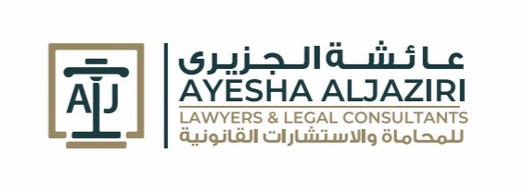Are you a parent trying to protect your child’s interests in school? Or a student unsure of what your rights actually are in the UAE’s education system?
Whether your child is attending a private school in Dubai or a university in Abu Dhabi, knowing your legal rights isn’t just useful, it’s essential. From how schools handle discipline and fees to your right to appeal unfair treatment, UAE education law provides clear protections for students and families.
In this blog, we’ll walk you through the most important rights every student and parent should know, and explain how you can take action if something feels off. These aren’t just rules on paper. They’re enforceable standards that can make a real difference in your educational journey.
1. Equal Access to Education
The UAE Constitution guarantees the right to education for all citizens. Federal Law No. 3 of 2016, known as the “Wadeema Law,” reinforces this by ensuring that every child has access to education without discrimination. Schools are mandated to provide equal opportunities regardless of nationality, gender, or background.
2. Safe and Supportive Learning Environments
The Ministry of Education’s Student Code of Conduct prohibits any form of physical or psychological abuse in schools. This includes corporal punishment, bullying, and any actions that may harm a student’s well-being. Educational institutions are required to implement policies that promote a safe and nurturing environment for all students.
3. Right to Privacy and Data Protection
Students’ personal and academic information is protected under UAE law. Schools must handle student data with confidentiality and are restricted from sharing information without proper consent. This ensures that students’ privacy is respected throughout their educational journey.
4. Protection Against Unjust Disciplinary Actions
Students have the right to fair treatment in disciplinary matters. The Student Code of Conduct outlines procedures that schools must follow before imposing suspensions or expulsions. This includes providing clear reasons for disciplinary actions and allowing students to present their side of the story.
5. Right to Appeal Academic and Disciplinary Decisions
If a student or parent believes that a disciplinary action or academic decision is unjust, they have the right to appeal. The Knowledge and Human Development Authority (KHDA) and the Ministry of Education provide structured channels for filing grievances. In more complex cases, seeking an expert education law service can help ensure your rights are fully protected and the appeals process is handled professionally.
6. Parental Involvement in Educational Decisions
Parents play a vital role in their children’s education and have the right to be involved in key decisions. This includes consenting to special programs, assessments, and any changes in the student’s academic path. Schools are encouraged to maintain open communication with parents and involve them in the decision-making process.
7. Inclusive Education for Students of Determination
The UAE is committed to inclusive education, ensuring that students with special needs, referred to as “Students of Determination,” receive appropriate support. Federal Law No. 29 of 2006 mandates that educational institutions provide necessary accommodations and resources to facilitate learning for these students.
8. Transparency in Tuition and Fees
Schools are required to be transparent about tuition fees and any additional costs. The KHDA oversees fee structures in Dubai, ensuring that schools do not impose unauthorized charges. Parents have the right to receive clear information about all fees and to dispute any discrepancies through proper channels.
Why Legal Guidance Matters in Education Law Cases?
Navigating the complexities of education law can be challenging. At Ayesha Aljaziri Lawyers & Legal Consultants, we specialize in providing expert legal advice on matters related to education law in the UAE. Our team is well-versed in the nuances of the legal system and is dedicated to protecting the rights of students and parents. For expert assistance with education law matters, contact Ayesha Aljaziri Lawyers & Legal Consultants at +971 5594 83605 or email info@aljaziriadvocates.com.
Frequently Asked Questions
What is education law in the UAE?
Education law in the UAE encompasses a set of regulations and policies established by the government to govern the education system. These laws ensure the rights of students, set standards for educational institutions, and outline the responsibilities of educators and administrators.
Can a student take legal action against a school in the UAE?
Yes, if a student or parent believes that their rights have been violated, they can file a complaint with the relevant educational authority, such as the KHDA or the Ministry of Education. In cases where resolution is not achieved, legal action can be pursued through the UAE judicial system.
How can parents file a complaint if their child's educational rights are violated?
Parents can first address the issue directly with the school’s administration. If the matter remains unresolved, they can escalate the complaint to the KHDA (for Dubai schools) or the Ministry of Education. These bodies have established procedures for handling grievances and ensuring compliance with education laws.
Are there education law attorneys who handle school disputes in the UAE?
Yes, there are law firms in the UAE that specialize in education law. These attorneys can provide legal advice and representation in cases involving school disputes, ensuring that the rights of students and parents are protected.
Can I study education law online in the UAE or abroad to better understand it?
Absolutely. Several universities and institutions offer online courses in education law. Studying these courses can provide valuable insights into the legal aspects of education, which can be beneficial for educators, administrators, and parents alike.
What happens if a private school expels a student without justification?
If a student is expelled without valid reasons or due process, parents can challenge the decision by filing a complaint with the KHDA or the Ministry of Education. These authorities will investigate the matter and can mandate corrective actions if the school’s decision is found to be unjustified.








